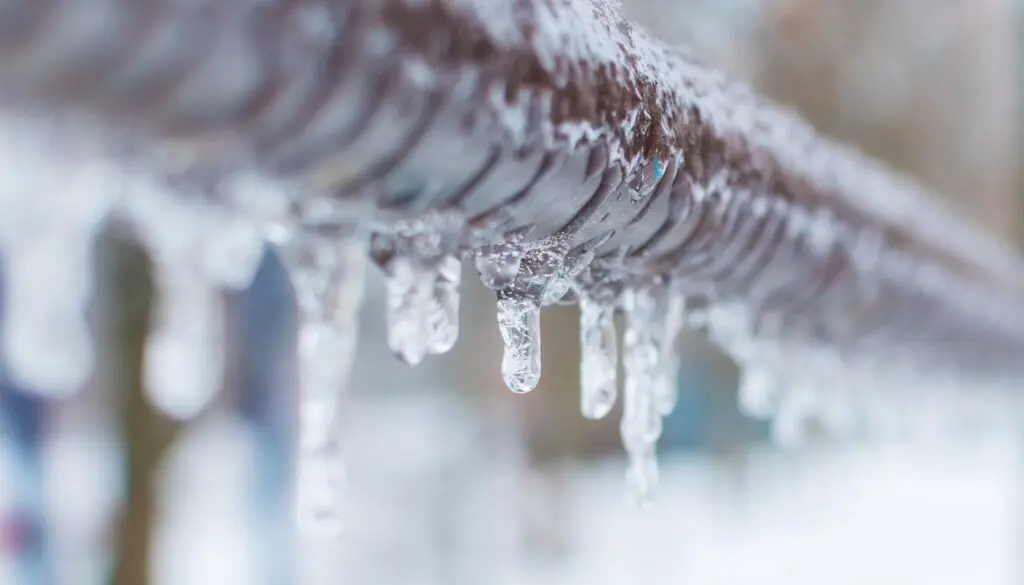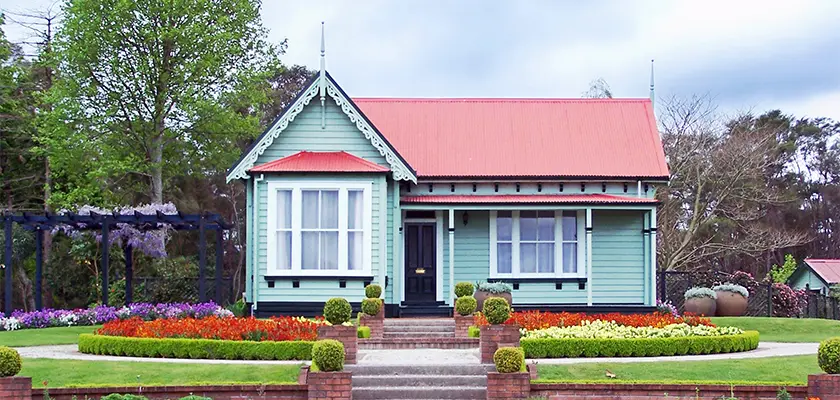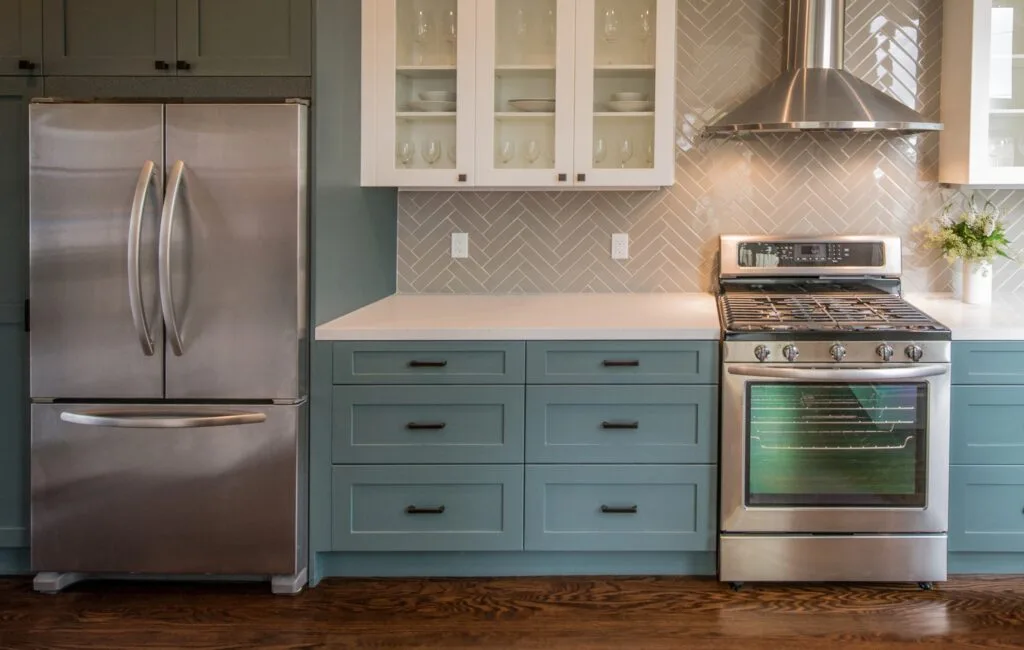
Frozen pipes are among the biggest worries for homeowners during cold months. When temperatures drop, frozen pipes can become a very stressful and costly issue.
Home warranties provide protection against many plumbing issues, but not frozen pipes. Be sure to read your homeowners insurance policy details to learn how costs can be covered.
Do you have questions about plumbing home warranty coverage? Call us today: 800-670-8931
The first symptom of a frozen pipe is when you turn on your faucet and water does not run. If this is your only symptom, you may have caught the issue before damage can occur.
Check throughout your home and property to be sure pipes have not burst. It takes between 3-6 hours for frozen pipes to burst, depending on if they are insulated and how low temperatures around the pipes have reached.
When your pipes freeze, the ice formed within your pipes causes explosive water pressure. This leads to leaks, and can quickly escalate to severe and costly damage. Act fast and follow these three steps to solve the problem:
1. Loosen the valves on your sinks and bathtubs. This helps to relieve pressure on your pipes as they are thawing.
2. Identify where your pipes are frozen by listening and checking for symptoms, such as bulging pipes, and by following the pipeline from your faucets.
3. Once you’ve found the frozen sections of pipe, apply a safe heat source, such as an electric blanket or hair dryer. Be very careful when using space heaters so that flammable material is not in the vicinity and the heat source is supervised at all times.
Frozen pipes within your house are the most manageable as long as you can control the heat above 55 degrees. There are many ways to help frozen pipes within your walls and others that may be more exposed in your basement.
If you’re pipes have burst, immediately turn off the main water supply to your home. It’s time to call a professional.
To help defrost pipes within a wall, open the faucet the pipes lead to. Use a heat source, such as an infrared lamp, on the section of wall in front of your pipes. If the pipes are in a location that is hard to locate and apply heat, you will need an expert to assess the problem right away.
Pipes underground can take a long time to defrost on their own. To speed up the process, run a hose through the pipe and channel hot water into the pipe.
Frozen pipes are preventable. If your home does not usually experience sub-freezing winters, such as in Texas, it may not have been built with strong insulation. Follow these steps below to help prevent freezing pipes next winter:
1. Insulate your home to keep temperatures consistent. Start by insulating all doorways, windows, and vents leading to the outside. Be sure all air conditioners in the home are covered or removed. Seal any cracks in your walls that may also cause a draft. Consider adding insulation to your exposed pipes.
2. Drain any outdoor water sources and hoses, such as your pool and sprinkler system, and cut off water supply to these outdoor pipes.
3. Keep your home’s temperature above 55 degrees. If some areas of your home are more prone to dropping below 55 degrees, raise your heat and keep inner doors open between rooms. Consider opening any cabinets or closets in your home that may have pipes behind them to keep up air circulation around your pipes.
4. If you’re worried your pipes might freeze on an especially cold day, let your faucets drip cold water to keep water moving through your pipes.
Home warranties offer coverage on plumbing systems, but are limited in helping with frozen pipes. Frozen pipes are a serious issue that requires prevention and fast action when this problem occurs.
Does your plumbing system stress you out? Learn more about plumbing system coverage by calling us today, and sign up for a FREE QUOTE to compare your options: 800-670-8931

Don’t wait until it’s too late! Check out our current plans and get your free quote.

Real Estate
The idea of owning a home is exciting, but the process can feel overwhelming. Before you start house hunting, it is important to understand how to buy a home the..

Household Tips
In 2025, the HVAC industry will experience a major transformation with the introduction of new refrigerant changes. The Environment Protection Agency (EPA) has set new guidelines for global warming potential..

Home Warranty
The cost to repair home appliances can quickly add up. Is it worth it to fix your old refrigerator, or would buying a new one be cheaper? Knowing the price..